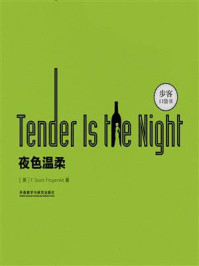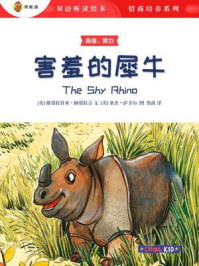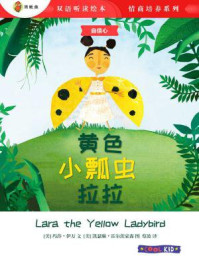




 1.2 主题阅读与翻译例文
1.2 主题阅读与翻译例文
1.One of the greatest untold secrets of history is that the"modern world"in which we live is a unique synthesis of Chinese and Western ingredients.Possibly more than half of the basic inventions and discoveries upon which the"modem world"rests come from China.
2.And yet few people know this.Why?
3.The Chinese themselves are as ignorant of this fact as Westerners.From the seventeenth century on-wards,the Chinese became increasingly dazzled by European technological expertise,having experienced a period of amnesia regarding their own achievements.When the Chinese were shown mechanical clock by Jes-uit [1] missionaries,they were awestruck.They had forgotten that it was they who had invented mechanical clocks in the first place!
4.It is just as much a surprise for the Chinese as for Westerners to realize that modem agriculture,modem shipping,the modem oil industry,modem astronomical observatories,modern music,decimal mathematics,paper money,umbrellas,fishing reels,wheel barrows,multi-stage rockets,guns,under-water mines,poison gas,parachutes,hot-air balloons,manned flight,brandy,whisky,the game of chess,printing,and even the essential design of the steam engine,all came from China.
5.Without the importation from China of nautical and navigational improvements such as ships'rudders,the compass and multiple masts,the great European Voyages of Discovery could never have been undertak-en.Columbus would not have sailed to America,and Europeans would never have established colonial em-pires.
6.Without [2] the importation from China of the stirrup,to enable them to stay on horseback,knights of old world would never have ridden in their shining armor to aid damsels in distress;there would have been no Age of Chivalry.And without the importation from China of guns and gunpowder,the knights would not have been knocked from their horses by bullets which pierced the armor bringing the Age of Chivalry to an end.
7.Without the importation from China of paper and printing,Europe would have continued for much longer to copy books by hand.Literacy would not have become so widespread.
8.Johann Gutenberg [3] did not invent movable type.It was invented in China.William Harvey [4] did not discover the circulation of the blood in the body.It was discovered or rather,always assumed in China.I-saac Newton was not the first to discover his First Law of Motion.It was discovered in China.
9.These myths and many others are shattered by our discovery of the true Chinese origins of many of the things,all around us,which we take for granted.Some of our greatest achievements turn out to have been not achievements at all,but simple borrowings.Yet there is no reason for us to feelinferior or downcast at the realization that much of the genius of mankind's advance was Chinese rather than European.For it is ex-citing to realize that the East and the West are not as far apart in spirit or in fact as most of us have been led,by appearances,to believe [5] ,and that the East and the West are already combined in a synthesis so powerful and so profound that it is all-pervading.Within this synthesis we live our daily lives,and from it there is no escape.The modem world is a combination of Eastern and Western ingredients which are inextri-cable fused.The fact that we are largely unaware of it is perhaps one of the greatest cases of historical blind-ness in the existence of the human race.
10.Why are we ignorant of this gigantic,obvious truth?The main reason is surely that the Chinese themselves lost sight of it.If the very originators of the inventions and discoveries no longer claim them,and if even their memory of them has faded,why should their inheritors trouble to resurrect then lost claims?Until our own time,it is questionable whether many Westerners even wanted to know the truth.It is always more satisfying to the ego to think that we have reached our present position alone and unaided,that we are the proud masters of all abilities and all crafts.
11.The discovery of the truth is a result of incidents in the life of the distinguished scholar Dr.Joseph Needham [6] ,author of the great work Science and Civilization in China.In 1 937,aged 37,Needham was one of the youngest Fellows of the Royal Society and a biochemist of considerable distinction at Cambridge.He had already published many books,including the definitive history of embryology.One day he met and befriended some Chinese students,in particular a young woman from Nanking named Lu Gwei-djen [7] ,whose father had passed on to her his unusually profound knowledge of the history of Chinese science.Needham began to hear tales of how the Chinese had been the true discoverers of this and that important thing,and at first he could not believe it.But as he looked further into it,evidence began to come to light from Chinese texts,hastily translated by his new friends for his benefit.
12.Needham became obsessed with this subject,as he freely admits.Not knowing a word of Chinese,he set about learning the language.In 1942 he was sent to China for several years as Scientific Counselor to the British Embassy in Chungking [9] .He was able to travel all over China,learn the language thoroughly,meet men of science everywhere he went,and accumulate vast quantities of priceless ancient Chinese books on science.These were flown back to Britain by the Royal Air Force and today form the basis of the finest li-brary,outside China,on the history of Chinese science,technology and medicine,at the Needham Re-search Institute in Cambridge.After the War,Needham was among those who"put the's'into UNESCO [8] ",having persuaded that organization to concern itself with science as well as education and cul-ture.He became UNESCO's first Assistant Director General for the natural sciences.
13.In July 1946 Needham stated in a lecture to the China Society in London that:"What is really very badly needed is a proper book on the history of science and technology in China,especially with reference to the social and economic background of Chinese life.Such a book would be by no means academic,but would have a wide bearing on the general history of thought and ideas."
14.Needham,now back in Cambridge,went ahead and wrote and is still writing the very work which he envisaged,except for the fact that it is,indeed,very academic.Few general readers embark on even one of the thirteen volumes of Science and Civilization in China [9] so far published.It is in fact much easier to read than it looks,but of course is very expensive,and even many libraries cannot afford it.Needham,however,has never lost his early vision of a work which was"by no means academic":he has always wan-ted to make his work more accessible in every possible way.Therefore,when I approached him in 1984 with the suggestion that I write a popular book for the general reader based upon his half-century's labors,he a-greed more readily than at that time I could understand.It is now clear that this was a project which he had long envisaged,and which he felt he could no longer hope to accomplish himself.At the age of 86,he is still fully occupied seven days a week in the task of completing his main work,aided by an army of collabo-rators and buoyed up by his Institute [10] and its staff.Since I regard him as the greatest scholar of the twentieth century,I consider it an honor to be associated with him.(1,299 words)
(By Robert Temple)
[Notes]
1.Jesuit:耶稣会会士,1534年由Ignatius of Loyola(1491-1556)所创天主教一修会的成员。
2.注意这一段和下两段中虚拟语气的使用。
3.Johann Gutenberg(1398-1468):德国人,1436年发明了活字印刷。(from Longman Modern English Dictionary,1 976)
4.William Harvey(1578-1657):英国人,内科大夫。他发现并令人信服地演示了血液的循环。(from Longman Modern English Dictionary,1976)
5.…the East and the West are not…by appearances,to believe:东西方在精神和行为上并不像我们大多数人为表面现象所误导的那样是毫不相通的。
6.Dr.Joseph Needham(1900-1995):因推崇老子李耳,故取姓“李”。著名科技史学家、生物化学家。英国唯一一位既是皇家学会会员,又是英国科学院院士的科学家,也是中国科学院首批外籍院士之一。他于1942-1946年任英国驻华科学代表团团长兼驻中国大使馆科学参赞,1946-1948年任UNESCO组织自然科学部主任,1950-1964年任英中友好协会会长,1965年任英中了解协会会长,1972-1975年任国际科学史联合会主席。他于1937年开始学中文,1948年着手撰写《中国科学技术史》,1954年第一卷问世。该书计划出七卷,约三十分册,目前已出版十六分册。
7.Lu Gwei-djen:鲁桂珍博士(1904-1991)Dr.Needham的第二位妻子和他长期的主要合作者。
8.put the“s”into UNESCO:UNESCO是The United Nations Educational,Scientific,and Cultural Organization(联合国教科文组织)的缩写,“s”在此处指科学。如该句下部分解释:李约瑟和其他人一起使该组织在关心教育和文化的同时也关心科学。
9.该书译名为《中国:发明与发现的国度——中国科学技术史精华》,已由21世纪出版社出版。
10.his Institute:此处指剑桥李约瑟研究所,英文原文为The Needham Research Institute。
1.容闳,生于公元1828年,卒于公元1912年,号纯甫,广东香山(今中山县)人,近代中国著名的爱国者、杰出的社会活动家和向西方学习的先驱。容闳出生在贫苦农民家庭,童年时,父亲为把他培养成买办,设法将他送到澳门,在英国人创办的一所小学里受启蒙教育。1847年,在香港的一些英美人士的赞助下,容闳赴美留学,进入了马萨诸塞州孟松学校 [2] 。毕业后,他又考入了美国著名的耶鲁大学。在大学里,他发愤苦读,克服了数学基础差和费用不足的种种困难,终于以优良的成绩获得了文学学士学位 [3] 。容闳是第一个毕业于美国的大学的中国留学生。
2.容闳长年学习和生活在国外,大学毕业后,他的生活习惯和内在气质,都已与中国同胞截然不同。但是他没有忘记自己是炎黄子孙 [4] ,对祖国始终充满了爱。为了用自己的知识报效祖国,离开耶鲁后,容闳毅然拒绝了留在美国的劝诱,回到了祖国的怀抱 [5] 。
3.容闳回国后,看到了清政府的腐朽落后和国家的贫弱。面对现实,他忧国忧民。对比中西社会,他认识到,要使中国富裕强盛,就必须向西方学习。当时他的主张主要有两点:一是培养通晓西方文化科学知识的各种人才;二是引进西方先进技术,发展民族工业和交通运输业。为了实现自己的主张,容闳不辞辛劳、四处奔走,寻觅可行的途径 [6] 。就在这时,曾国藩为了兴办洋务 [7] ,广泛招聘人才,向容闳发出了邀请。1863年9月,容闳应邀到达安徽,入曾国藩大营。
4.到安庆后,容闳向曾国藩提出了建立机器工厂的建议,这个建议与曾国藩建立近代兵工厂的想法基本一致,曾国藩即授予他出洋购办机器的全权。1865年,容闳从美国订购了100多种机器,为江南制造总局提供了主要设备。
5.除了兴办近代工业企业,容闳还十分注重培养西学人才。他两次提议清政府派遣留学生赴美学习。清政府采纳了他的建议,几年内先后派遣了120名官费留学生,还任命容闳为中国留学事务所副监督。
6.晚年,容闳定居美国,但他对于国家的命运与前途依然极为关注。对孙中山领导的资产阶级革命运动,他给予了极大的支持 [8] 。直到去世前夕,他还不忘叮嘱自己的两个儿子,一定要放弃在美国的职业,回国服务。大学者梁启超曾经说容闳“舍忧国外,无他思想,无他事业也” [9] 。美国人特韦契耳也评论容闳:“他从头到脚,身上每一根神经纤维都是爱国的。”对于这些称誉,容闳是当之无愧的。
(选自《英语笔译实务》二级,外文出版社,2009,此处注释稍有删改)
[翻译提示]
1.标题为“容闳”的这篇短文是一篇描写人物的叙事性散文,它以平铺直叙的文字叙述爱国者容闳的一生,字里行间流露出对这位热忱的爱国者和社会活动家的赞许和敬仰,无一浮夸之词。翻译时应注意把握其语言特征,尽力以朴实和简洁的文字再现容闳这一爱国者的形象。
2.“孟松学校”作Monson Academy。Academy指专门性的学院,最高的如中国社会科学院,China Academy of Social Sciences。美术学院academy of fine arts;炮兵学院artillery academy,但音乐学院则称为conservatory of music。
3.英语里“以优良成绩毕业”、“优秀毕业生”,译为graduate with honors或graduate with flying colors。
4.炎黄子孙:在吴景荣、程镇球主编的《汉英大辞典》中,译为descendants of Yandi and Huangdi,或The Chinese nation。前一说法,可以认为是直译法,即“炎黄”,Yan-Huang,通常指Yandi and Huangdi,放在一起通常指中华民族的开拓先祖,即the ancestors of the Chinese nation。说“某某人是炎黄子孙”,可译为a descendant of Yandi and Huangdi。但这种译法对不熟悉中国历史的人来讲不易理解,故也可采用意译法,不保留“炎帝”和“黄帝”的形象,而只说a Chinese de-scendant,和美国人对美籍华人的称谓a Chinese American或an American with Chinese background相近。
5.“为了用自己的知识报效祖国,离开耶鲁后,容闳毅然拒绝了留在美国的劝诱,回到了祖国的怀抱。”翻译这句话时,需注意这句话的信息中心是“回到了祖国的怀抱”,之前的部分起让步作用。故本句译为:Upon graduation from Yale,he was offered opportunities to stay in the United States but,urged by his desire to apply what he had learned to the well being of his motherland,he rejected the offers and returned to China.
6.汉语中常常运用词义的重叠来加强语言的气势,如本句的“不辞辛劳、四处奔走,寻觅可行的途径”实现语言的均衡美、节奏美,英译时可根据英语语言的特点和审美需要或译出,或不译。如本句的译文:He began to run about,trying to seek possible means to this end.其中possible means(千方百计)即可代表一切的努力。
7.洋务:该词有两种解释,一是清末指关于外国的和模仿外国的事务;二是香港等地指以外国人为对象的服务行业。这里主要指“模仿外国的事务”,即西化,可译为Westernization drive。
8.这里“极大的支持”只是一种精神、道义上的支持,不包括物质援助,翻译时需明示。仅译为extended great support易造成语义的扩展,引起误解。在这里要注意原文语气的体现。原文中“直到去世前夕,他还不忘叮嘱……”从词语层面表现出对行为的强调。译文也应注意通过某种词法或句法手段加以再现。参考译文也是从词语层面(kept telling)再现原文的强调语气的,可供参考。
9.梁启超用了一个“舍”、两个“无他”强调容闳的品格,语言简洁、有力,翻译时应注意突出这种强调的效果,此处译为:He had no other thoughts and no other pursuits but concerns for his country,以突出中心意思。


